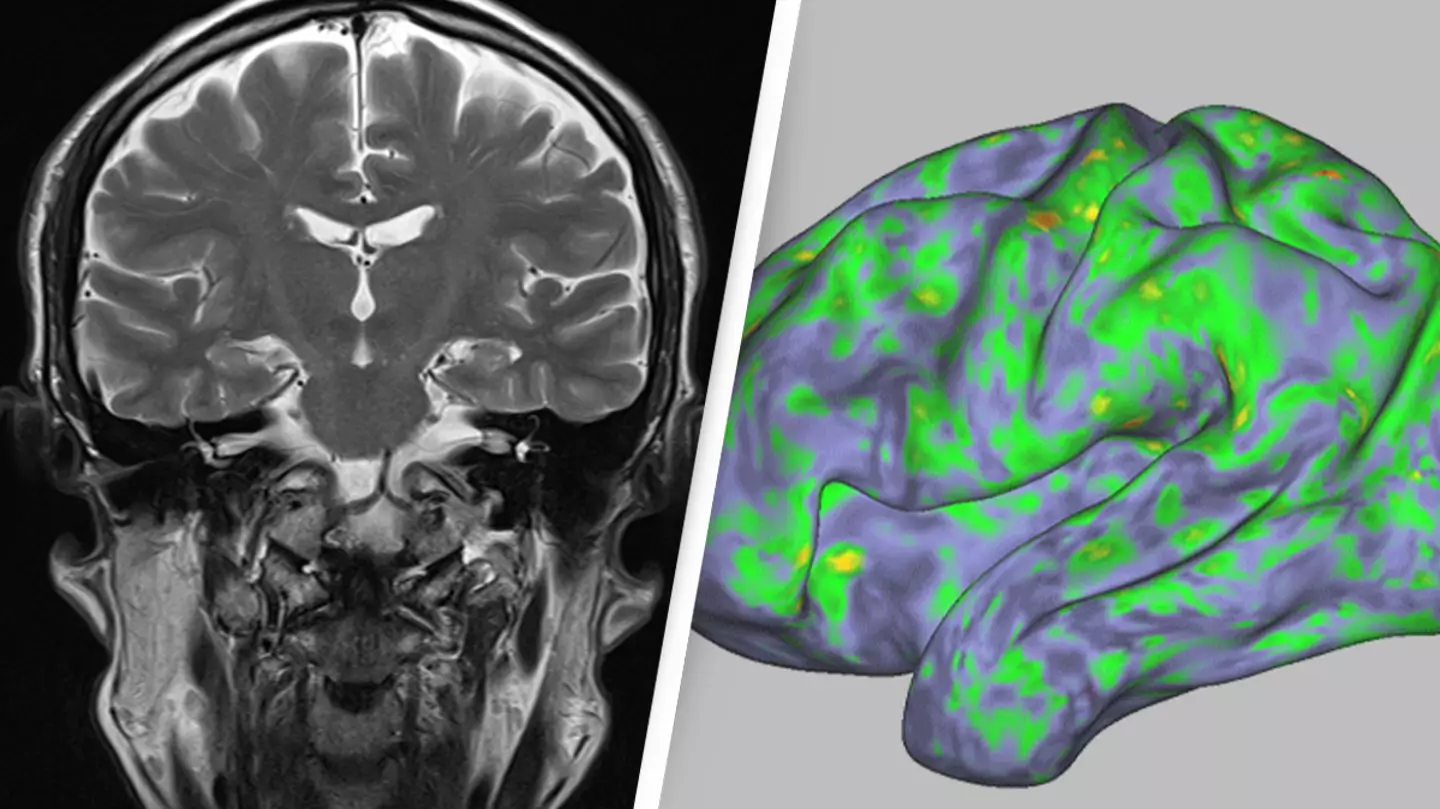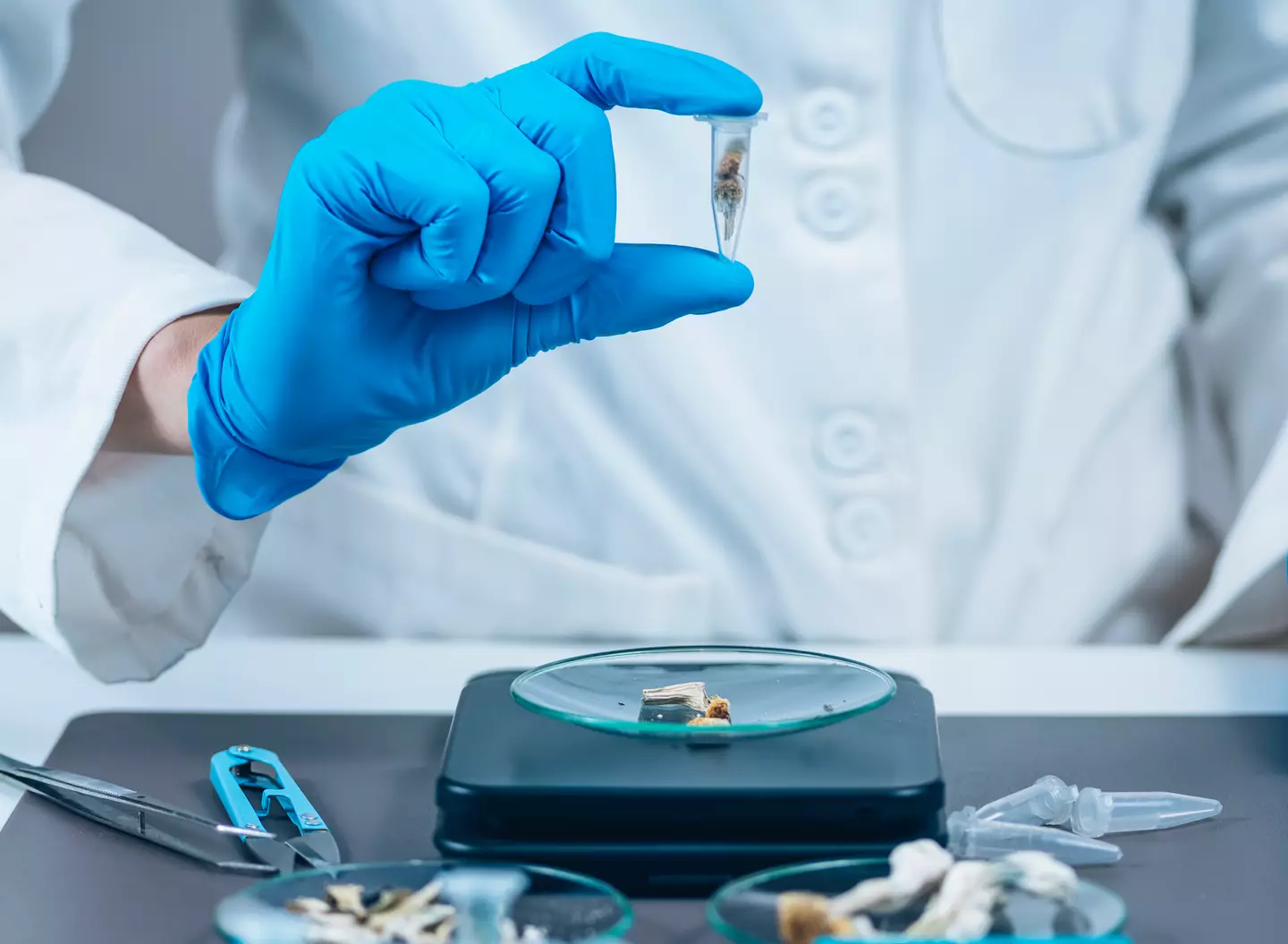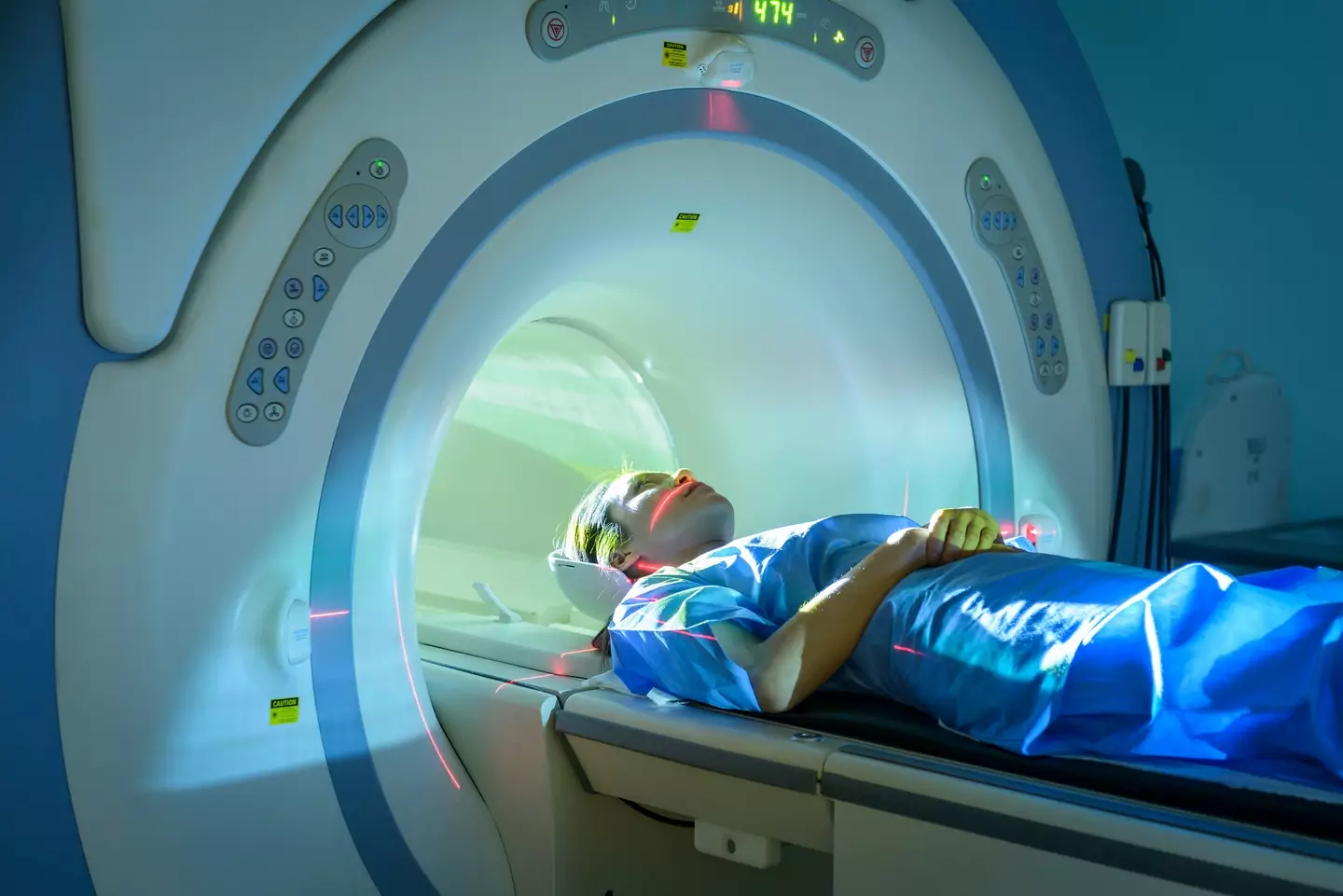
A professor of neurology has described experiencing his 'brain fall apart' after he accepted a psychedelic drug.
Dr. Nico Dosenbach works at the Washington University School of Medicine in St. Louis, and has scanned his own brain on multiple occasions in a bid to learn more about what's going on inside his head.
His work means that having an MRI is nothing new for him - but one thing he'd never done before was take a psychedelic drug before going into the machine.

Advert
He did this for the first time as part of a study of seven people which was designed to show how psilocybin - the substance in magic mushrooms - produces its mind-altering effects.
In the study, the seven participants were randomly assigned to either receive a stimulant or a dose of psilocybin that was high enough to cause hallucinations.
Their brains were then scanned an average of 18 times over a three-week period, allowing scientists were getting as much detail as possible.

Dosenbach was among the participants who received psilocybin, and he recalled 'drifting deeper into weirdness' as it began to take hold.
"I didn't know where I was at all. Time stopped, and I was everyone," he said, per NPR.
"I was inside the brain, and I was riding brain waves, and I was [colleague and co-author] Marc Raichle," he recalled.
Having come out of the other side of the trip, Dosenbach said to experience it as a neuroscientist was 'awesome', explaining: "It's really fascinating how your brain can fall apart — because how something breaks tells you how something works."
The results of the study, which have been published in the journal Nature, have suggested that psychedelic drugs work by disrupting certain brain networks; in particular one that helps us form a sense of space, time and self.
The study also offers insight into how the drugs temporarily enhance 'plasticity' in the brain, which is its ability to adapt and change.

Dr. Joshua Siegel, a researcher at Washington University and the study's lead author, explained these disruptions in brain networks appear to be 'where the plasticity effects of psychedelics are coming from'.
"What's going on during psilocybin is that populations of neurons that are normally in synchrony are out of synchrony," he explained.
The brain effectively 'falls apart', and then responds by entering a state of enhanced plasticity that can last for weeks.
By seeing how the drug works, the researchers acknowledged how it may be useful for treating addiction, depression or post-traumatic stress.
"There seems to be this time of increased change that could be taken advantage of by therapists," said Dr. Petros Petridis, of New York University's Langone Center for Psychedelic Medicine.
Dr. Ginger Nicol, a psychiatrist at Washington University, noted that her husband, who took part in the study, saw 'demons' during one of his trips, indicating usage definitely has its downsides.
However, she noted psychedelics may be able to help psychiatric patients realize they have the capacity to change.
Topics: Mental Health, Drugs, Science